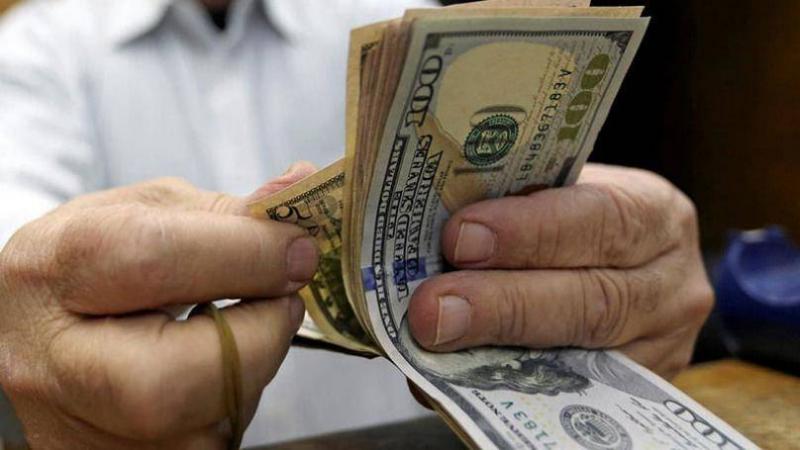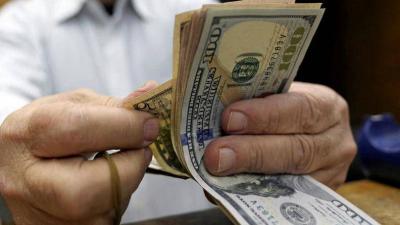The Finance Committee continues to study the budget items under the draft law for the state budget and supplementary budgets for 2022. It is rumored that the direction will be towards unifying the exchange rate at 20,000 LBP for all transactions, including customs dollars and the Sayrafa platform. This comes as a result of an implicit agreement within the political backstage, which also involved Presidents Michel Aoun, Nabih Berri, and Najib Mikati. This would end the official rate set at approximately 1,500 LBP for years. However, today's session did not finalize any figures, as its head, Deputy Ibrahim Kanaan, stated that "we can set paper numbers," noting that Minister of Finance in the caretaker government, Youssef Khalil, indicated that the direction is toward a customs dollar value of 20,000, but the question is, "how do we achieve this?" He emphasized the need to be realistic since public sector salaries are still at 1,500 LBP, and we want to know the financial impact of this figure on the budget.
In commentary on these discussions, economic expert Jassem Ajaka argued that unifying the exchange rate and raising it to 20,000 LBP per dollar automatically raises the question: What about salaries? Will wages be based on this rate?
On another note, Ajaka explained with numbers how prices would change. He stated that if we start from a commodity priced at 100 dollars before reaching the consumer, the citizen pays according to the following calculation:
100 dollars × 32,000 (current black market exchange rate) + 11% × 1,500 LBP (value-added tax) + 5% × 1,500 LBP (customs fees) = 3.224 million LBP. It is noted here that traders do not adhere to the fixed exchange rate on the Sayrafa platform but rather to the black market rate.
If the unified dollar price becomes 20,000 LBP, the price will change to:
100 dollars × 32,000 (since traders will only adhere to the black market rate) + the VAT will become 220,000 LBP + customs fees will be about 100,000 LBP.
Through a calculation, it is shown that the price of a commodity priced at 100 dollars will rise from 3.2 million LBP to 3.52 million LBP, indicating an increase of about 10% on the final price.
Ajaka confirmed that unifying the official exchange rate does not eliminate the black market; he explained that discussions about 500 goods excluded from the rise in the customs dollar are inaccurate because traders will not comply, as proven by multiple experiences. The fundamental question remains: who will monitor this, the Ministry of Economy or the security agencies? This leads to a lack of effective oversight, and consequently, the prices of all goods will rise based on the daily black market rate.
In response to a question, he said: "Let the ministerial committee and the government tell us about the measures they will take to stop the black market," adding that what the state will collect in its treasury as a result of this increase will be an additional 300,000 LBP for every 100 dollars imported, considering that the trader priced these fees based on the citizen (according to the daily black market dollar rate), and claims they are at the 1,500 LBP rate. This implies that what the state will gain will actually come from the trader, who will naturally resort to compensation via smuggling, warning that we could reach a situation where the volume of goods entering through customs decreases significantly, boosting smuggling activities.
Ajaka added: "The story does not end here. What about the loans that citizens are still repaying to this day at an exchange rate of 1,500 LBP per dollar? What will happen to them based on 20,000 LBP? Will a 200 dollar note cost more than 4 million LBP? Does the citizen have the capacity to bear this, especially when nothing is clear regarding salaries?"
Based on all of the above, Ajaka concluded: "We reach a sensitive point; if the dollar is fixed at the ceiling of 20,000 LBP and it rises in the black market, it will create a budget deficit that renders it illusory, as what is mentioned in its texts will not be realized."
He added: "We will then be faced with two matters: creating a deficit in the budget or asking the Central Bank to stabilize the dollar, meaning transferring the deficit from the general state budget to the Central Bank's budget."
Ajaka concluded: "It is an illusory budget concerning the deficit and also an illusory budget concerning spending... in other words, the plan has collapsed."




